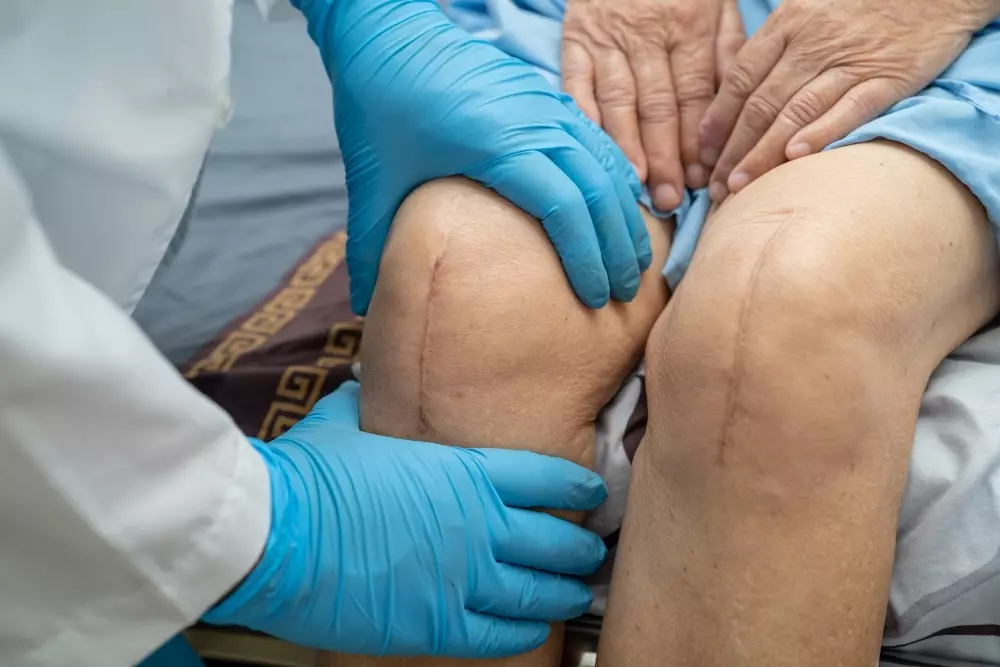Painful Knee Replacement

Painful Knee Replacement Treatment in Bengaluru at VijaySheela Sports-Orthopedics Clinic
At VijaySheela Sports-Orthopedics Clinic, Bengaluru, Dr. Vijay Girish specializes in diagnosing and treating painful knee replacements — a condition where patients experience persistent pain or discomfort even after undergoing knee replacement surgery. While most knee replacements offer lasting relief and restored mobility, a small number of patients may continue to face pain due to various underlying causes such as implant issues, infection, instability, stiffness, or soft tissue irritation.
Identifying the root cause of a painful knee replacement is crucial to achieving long-term relief and regaining function. Dr. Vijay Girish uses advanced imaging, laboratory analysis, and a comprehensive clinical evaluation to determine the reason behind the pain. Once diagnosed, a customized treatment plan is developed — which may include non-surgical options, revision surgery, or targeted rehabilitation to address the underlying issue effectively.
What is a Painful Knee Replacement?
A painful knee replacement occurs when a patient continues to experience significant pain, swelling, or stiffness months after knee replacement surgery. While mild discomfort during the recovery period is normal, chronic or worsening pain could indicate a problem with the implant, infection, soft tissue alignment, or surrounding structures. Proper diagnosis and timely intervention are essential to preserve knee function and prevent further complications.
Common Causes of Pain After Knee Replacement
Several factors can lead to a painful or failed knee replacement. Identifying the precise cause ensures effective treatment and recovery:
- Infection within or around the artificial joint leading to inflammation and pain.
- Implant loosening or malalignment causing abnormal joint mechanics and discomfort.
- Soft tissue irritation or scarring (arthrofibrosis) leading to stiffness and reduced motion.
- Instability in the replaced knee due to ligament imbalance or improper component positioning.
- Nerve-related pain or referred discomfort from hip, spine, or surrounding tissues.
Diagnosis and Treatment Approach
A step-by-step diagnostic process helps pinpoint the cause of pain and guide the right treatment:
- Detailed clinical examination to evaluate movement, alignment, and knee stability.
- Blood tests, joint aspiration, and cultures to rule out infection or inflammation.
- Advanced imaging (X-rays, CT, or MRI) to assess implant position and surrounding bone health.
- Conservative treatments such as physiotherapy, anti-inflammatory medications, or injections for mild cases.
- Revision knee replacement surgery if implant-related problems or severe damage are identified.
Painful Knee Replacement Treatment in RMV 2nd Stage
At VijaySheela Sports-Orthopedics Clinic, Bengaluru, Dr. Vijay Girish offers a comprehensive and evidence-based approach to managing painful knee replacements. Combining advanced diagnostics, minimally invasive revision techniques, and tailored rehabilitation, he aims to restore pain-free function and improve patient satisfaction. The focus remains on identifying the root cause, providing personalized care, and helping patients regain confidence in their mobility and quality of life.
